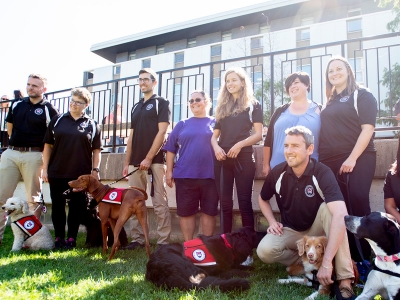By Tyrone Burke
Companies often assume that accommodating an employee with a disability will cost thousands of dollars. It’s a misperception that can create an additional barrier to finding employment, and it contributes to the job gap between students with disabilities and those without.
“In reality, accommodations often cost $500 or less” says Julie Caldwell, assistant director of program operations for the David C. Onley Initiative.
“Part of what this initiative has been doing is busting myths about disability and addressing the biases, fears and misperceptions that employers can have.”
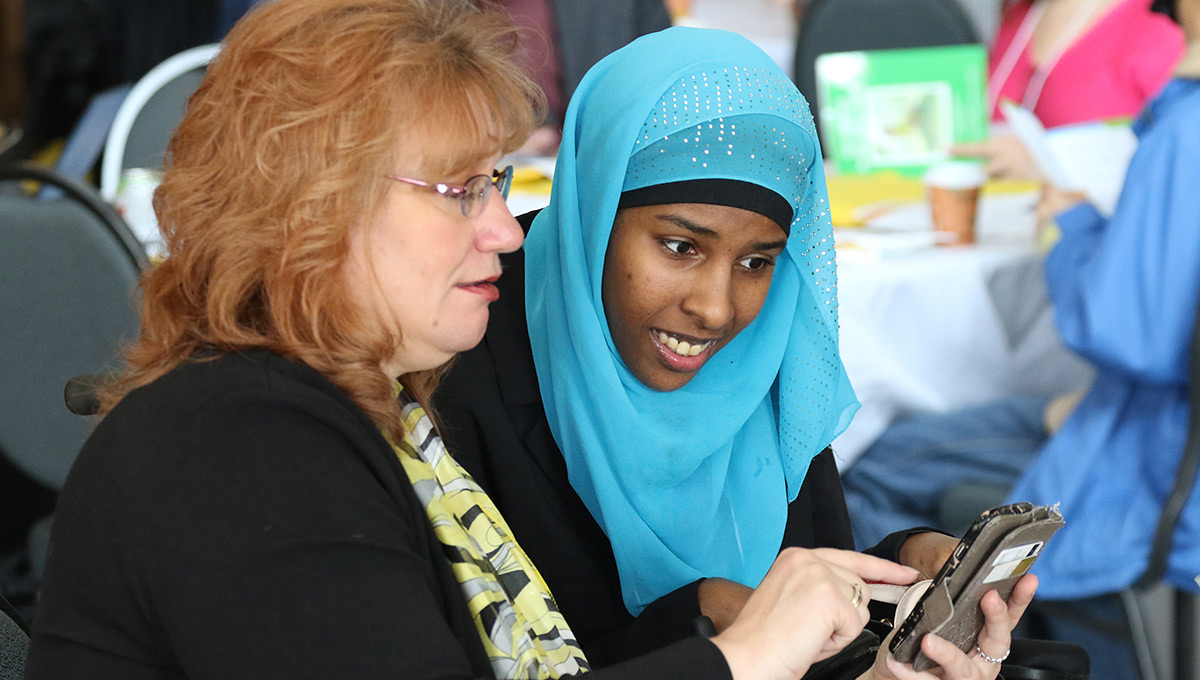
Julie Caldwell (left) with an engaged attendee at ENABLE 2019
Since launching in 2018, the David C. Onley Initiative has been developing knowledge, resources and tools to support the employment readiness and career aspirations of students with disabilities. The $5-million project is named for former Ontario lieutenant-governor David C. Onley, and funded by the Ministry of Training, Colleges and Universities.
It’s a Carleton-led partnership with the University of Ottawa, Algonquin College and Collège La Cité. In order to better understand the factors contributing to the employability of students with disabilities, the initiative embedded researchers in career and disability offices on each of the four campuses.
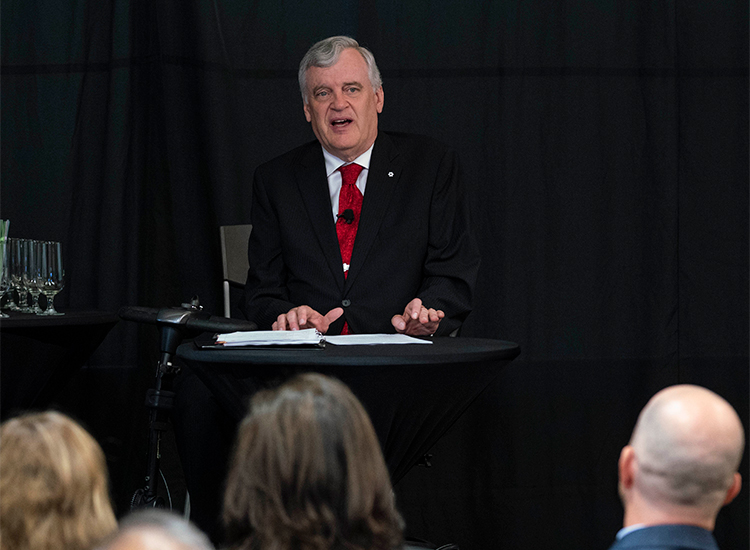
David C. Onley
They spoke to those responsible for planning recruitment events about how they ensured that students with disabilities were included, and hosted a series of accessible showcases on each campus, parallel to typical career fairs.
“Because they were for students with disabilities only, it allowed employers and students to engage in meaningful conversations in a safe environment,” says Caldwell.
“Students didn’t have to fear disclosing they had a disability when being considered for meaningful career opportunities.”

Strength in Numbers
“At the core of this initiative, we were looking at how we can enhance the collaboration amongst career and accessibility offices across each campus, to identify ways to better communicate, collaborate and support students with disabilities.”
The David C. Onley Initiative has also sought to inform and educate, both through public awareness campaigns like #ableto and through direct outreach to employers.
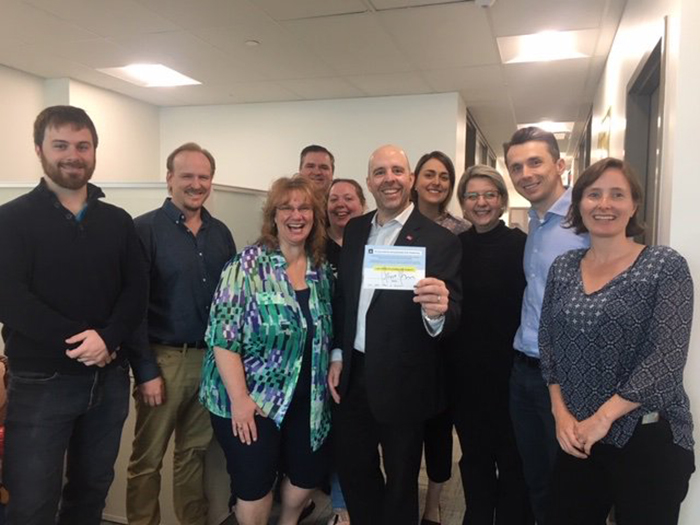
Carleton President Benoit-Antoine Bacon pledges his support to the #AbleTo campaign in June 2019.
“We talked to employers about whether they had diversity and inclusion recruitment teams, and what resources, tools and/or services they had in place to support the hiring of students with disabilities,” says Caldwell.
“In many cases, we received feedback about how organizations are open to hiring a person with a disability, but that they are unsure of how to have a conversation about accessibility and accommodations in the workplace, if needed. They fear saying or doing the wrong thing. Some employers are operating under perceived fears, barriers and/or biases. We busted myths about some of these thoughts through our ableto.ca campaign.”

Delivering Final Report
In September 2020, the initiative will deliver a final report to the Ministry of Training, Colleges and Universities. Based on its research, it will recommend a transferable model to help facilitate relevant supports for employability of students with disabilities.
“Ontario is facing a skilled labor shortage,” says Caldwell.
“Students with disabilities who are graduating from college and university programs have the training and knowledge to help address this shortage, but are often being overlooked because employers do not have access to tools, training and resources to help them create more accessible and inclusive work environments.”
Though the initiative’s work is winding down, its findings will be carried forward. Last December, Carleton launched a new pan-Canadian research initiative comprised of academic institutions, corporate partners and community service providers — the Canadian Accessibility Network. One of its five main areas of interest is the advancement of employment opportunities for Canadians with disabilities.
And throughout the project, the initiative has aimed to affect a lasting culture shift in Ottawa’s educational and business communities.
“We wanted to build the capacity of everybody we came in touch with — employers, campus career or disability offices, and community service providers,” says Caldwell.
Carleton University is building on its reputation for supporting persons with disabilities through the READ Initiative. Short for Research, Education, Accessibility and Design, the READ Initiative aims to establish Carleton as a Centre of Excellence in Accessibility. Through research and development, we are striving for a world that is accessible and inclusive. Learn more here.
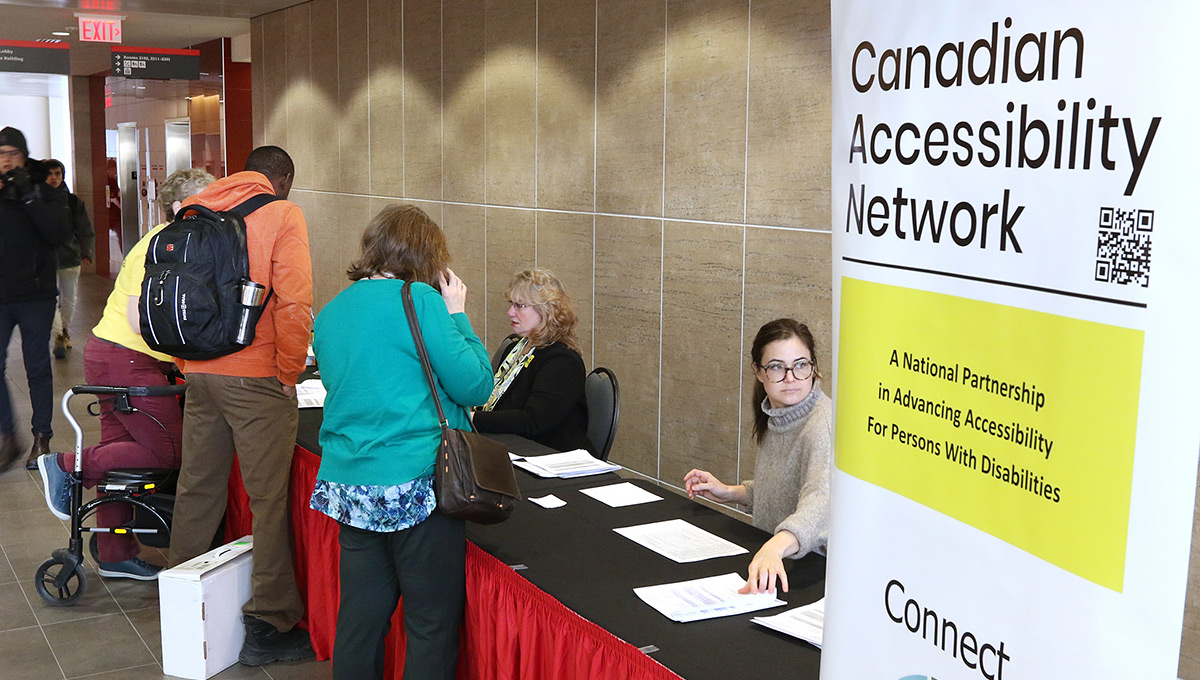
Wednesday, May 27, 2020 in Accessibility, Paul Menton Centre
Share: Twitter, Facebook

